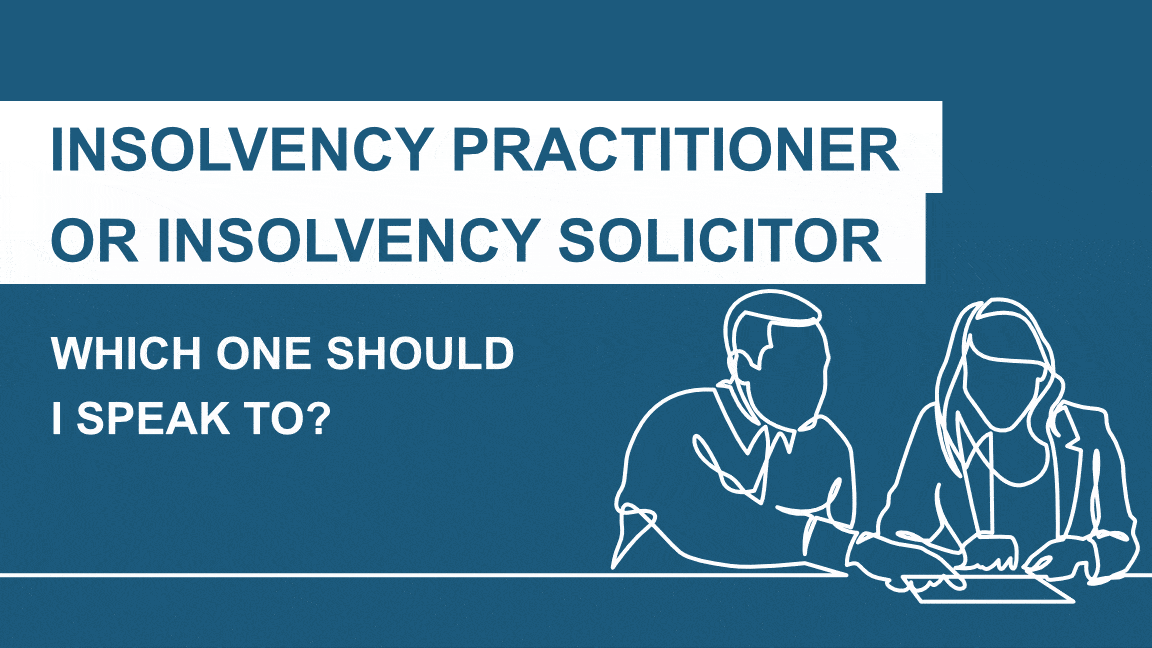Insolvency Practitioner Fundamentals Explained
Table of ContentsSome Known Facts About Insolvency Practitioner.The Definitive Guide to Insolvency PractitionerLittle Known Facts About Insolvency Practitioner.What Does Insolvency Practitioner Do?Indicators on Insolvency Practitioner You Should Know
Whether or not you need to utilize an insolvency practitioner (IP) to liquidate your firm depends on different elements. While engaging a bankruptcy specialist for all types of liquidation is not a lawful need, doing so can usually simplify the process and ensure compliance with legal requirements. Liquidating a company is a crucial decision that comes with substantial repercussions.

It is a procedure used when a business does not have any creditors, or all of their lenders can be paid off completely with legal rate of interest. Comprehending the various sorts of insolvency processes can help you determine the ideal program of activity for your business's liquidation or other formal insolvency procedures itself.
This is necessary in order to stick to lawful needs - Insolvency Practitioner. This is due to the fact that IPs have the necessary certifications and experience to guarantee that the liquidation process is performed according to all suitable laws and laws. By engaging an accredited insolvency practitioner, you can have comfort knowing that your company's liquidation process will certainly be dealt with expertly and in conformity with the relevant lawful needs
What Does Insolvency Practitioner Mean?
The insolvency specialist is selected as a liquidator and is in charge of managing the firm and liquidator's debts exceptional obligations and assets. This process entails selling the firm's possessions and distributing the proceeds to creditors. Upon completion of the process, the firm is gotten rid of from the register at Firms Residence.
Stopping working to do so can result in personal obligation for the business or director for the creditor's financial obligations. Voluntary liquidation, which includes Creditors' Volunteer Liquidation (CVL) and Members' Volunteer Liquidation (MVL), is started by the company's supervisors and investors when they can no more pay their financial debts. In a CVL, the bankruptcy expert is designated as the liquidator, liable for taking care of business debts and all business assets.

Insolvency Practitioner Fundamentals Explained
By evaluating the know-how and experience of prospective insolvency practitioners, you can ensure that you select a specialist that has the essential credentials to manage your business's liquidation process successfully. While insolvency practitioner-led liquidation is typically the most suitable strategy for business facing bankruptcy, there are different approaches to take into consideration, such as striking off and partial liquidation.
It's vital to evaluate all offered choices prior to choosing on the following best solution or training course of action for your business. Striking off firms' registers is a more simple and cost-efficient method to shut dormant or tiny companies with no debts or properties. To strike off a company, its name is eliminated from the Firms Residence register by sending type DS01.
Prior to deciding for striking off, it's essential you can find out more to consider the benefits and disadvantages of this strategy and consider whether it's the best option for your organization. Partial liquidation is one more alternative to bankruptcy practitioner-led liquidation, in which a company liquidates particular assets and obligations while proceeding to run with the staying properties and liabilities.
An Insolvency Professional will have the ability to recommend you of the finest training course of action to take and guarantee that everything runs efficiently. Regrettably, it is not possible to sell off a company without a liquidator. Selecting an authorised insolvency expert is necessary for the process of voluntary liquidation to begin.
The Definitive Guide to Insolvency Practitioner
It is possible to close and liquidate your firm without utilizing a liquidator, given your business is solvent and you fulfill the eligibility demands to liquify or liquidate it. However, if your company is financially troubled, you might be needed to use a liquidator and start official bankruptcy procedures. Here are a few other interesting short articles relating to business liquidation in the UK:.
Being in a placement where you're not able to pay your company's lenders is very stressful. In an effort to stay clear of raising the degree of financial debt, numerous firms attempt to work out directly with their financial institutions and agree to an informal arrangement. If the financial debt is rather tiny and owed to one lender, and the lender is being cooperative, participating in an casual financial obligation arrangement is most likely the finest option, instead of searching the web for 'a bankruptcy professional near me'.
On the various other go to these guys hand, if there are numerous lenders and the degree of debt is huge, lenders might not be so willing or cooperative. To avoid liquidation or insolvency, it is much better to employ an insolvency practitioner to prepare formal propositions and discuss with lenders in your place.
Insolvency Practitioner Things To Know Before You Get This
Whilst it is a way to manage debt, there are substantial dangers included with this type of financial debt plan - Insolvency Practitioner. If a financial institution is prepared to enter right into an informal setup (IA) where the debtor has actually agreed to make regular, if reduced, repayments to repay the financial debt, it's crucial to stick to the arrangement

The lender is within their civil liberties to back out of the contract and petition the courts for your business to be sold off at any kind of about his time. A formal setup that has been proposed by a bankruptcy professional on your behalf, and concurred by a lender, provides a much more secure choice.
Comments on “The 45-Second Trick For Insolvency Practitioner”